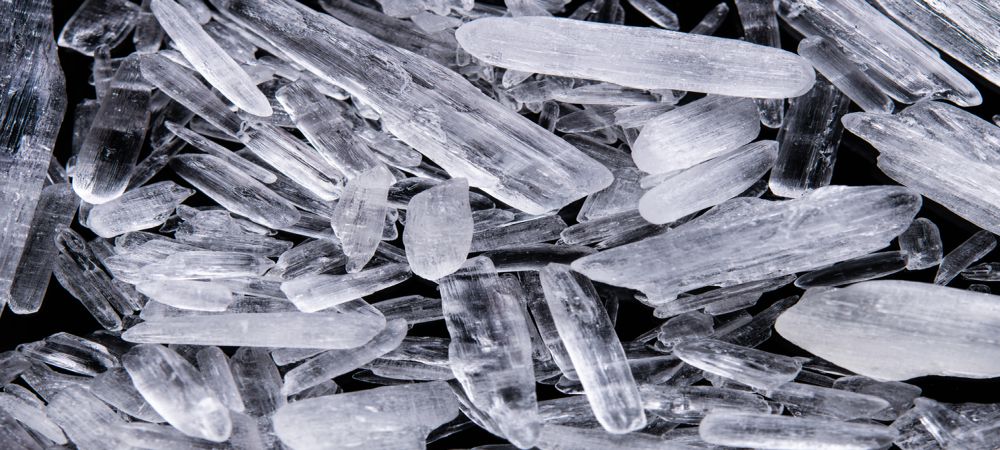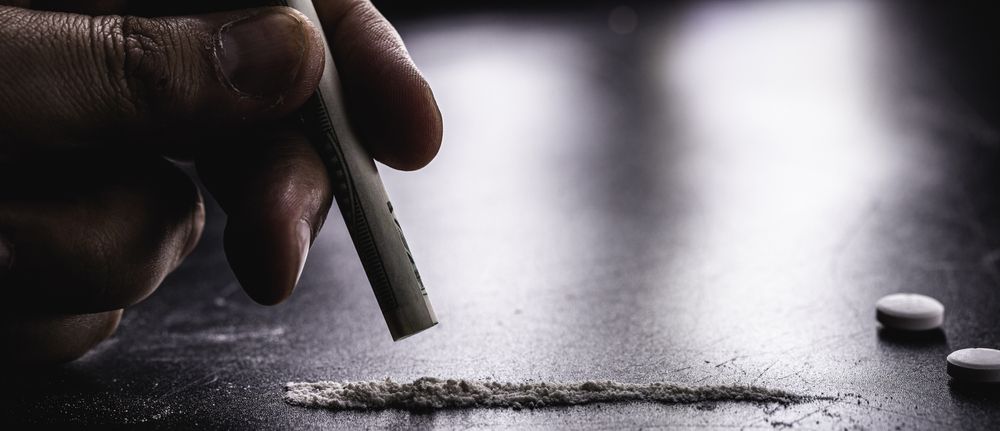
Methamphetamine Addiction: 7 Facts Will Help You Quit Using
There are several Methamphetamine addiction facts that many people do not know despite how viral the drug has become. If most people had this information, finding the motivation to quit may become relatively easier. Therefore, if you have been trying to stop using meth, but you cannot seem to do so, this article is for you.
Methamphetamine is easily one of the most dangerous and addictive controlled substances out there today. Typically used as a party drug, you can get hooked on meth from your very first use. Not just that, the continuous use of the drug results in severe damage on both physical and psychological levels.
Indeed, chronic meth use can cause significant health problems such as rotting teeth, respiratory issues, and even organ failure!
Compared to other drugs, methamphetamine addiction can quickly overshadow every other aspect of a person’s life. Therefore, if you are struggling with meth addiction, or you know someone that is, the best time to get help is now.
However, if you’re still thinking, ‘is meth that bad?’ we understand your reservations. So, we’ve come up with a way to help you see the truth about methamphetamine addiction.
We’ve created a compilation of some of the top less-known methamphetamine addiction facts and their consequences. We find that reading these facts may help you reach a conclusion to seek help for your addiction.
In the next few paragraphs, we will share insight into what methamphetamine is and why it is addictive. More importantly, we will reveal some surprising facts about methamphetamine addiction that can push you to quit. To top it all off, you will also discover some tips on managing meth addiction and where to get help.
What is Methamphetamine?
Right off the bat, methamphetamine is a human-made and very addictive drug that affects the nervous system upon use. It is a derivative of amphetamine and other chemicals. Of course, the substance is illegal. Sadly, the drug’s stimulating effect and its affordability can quickly cause users to develop a meth addiction.
Interestingly, meth has been around for quite a while, almost a century, to be precise. During the Second World War, soldiers used to take meth to keep them awake and alert.
In the times that followed, meth was legally available for public purchase and use. You see, the drug proved to be effective in treating nasal congestions and bronchial respiratory issues. But, in no time, many people started abusing the drug for its stimulant effects on the body. Unsurprisingly, in 1970 the FDA restricted the use of methamphetamine and classified it as Schedule II controlled substance.
Methamphetamine is primarily a party drug as it induces a quick rush of euphoria after use. You see, the substance causes a flood of dopamine (happy chemicals) in the brain.
It may also lead to feelings of confidence and never-ending energy. These effects are undoubtedly the reason for widespread meth addiction in Canada and the rest of the world.
The drug exists in two distinct forms – in clear crystal pieces or blue-white chunks. However, there are several nicknames that meth goes by on the streets. Here are some of them:
- Ice
- Speed
- Glass
- Crank
- Crystal
- Chalk
Users may choose to either snort, smoke, or inject meth with a needle. Another option is to dissolve it in a drink or to swallow it whole. Injecting or smoking the drug induces an almost immediate rush that lasts for a few minutes.
However, snorting and oral use will not cause a rush. But, users report a euphoric high within five minutes after snorting and about twenty minutes for oral administration.
Upon use, the effects of methamphetamine use usually last between six and eight hours. However, in some cases, the drug may last as long as twenty-four hours. This is relatively long if you compare it to the duration of ‘high’ other substances give.
Today, there are only two legal uses of meth products – in the treatment of obesity and ADHD (Attention Deficit Hyperactivity Disorder). Even at this, doctors rarely prescribe methamphetamine due to its highly addictive effects.
Unsurprisingly, it is usually very challenging to quit methamphetamine addiction. You see, the drug can permanently affect some areas of the brain, particularly the pleasure zone. We frequently see this in long-term users.
When this happens, it becomes increasingly difficult to feel any form of pleasure and happiness without using it. We’ll dive deeper into this when we explore methamphetamine addiction facts.
Related article: What Is Methamphetamine Addiction?
Is Methamphetamine Addiction Like Every Other Addiction?
At the base level, methamphetamine is indeed like every other addictive substance. However, what most people do not know is that it’s worse. You see, due to the intense nature of meth-induced highs, it has an extreme effect on the brain and body.
The physical and psychological toll methamphetamine takes on its users easily qualifies it as one of the most dangerous substances today.
Let us briefly share one of our methamphetamine addiction facts with you now. Meth is essentially a potent chemical poison that masquerades as a stimulant. Of course, users will testify to its intense stimulating effects when they use it. But right after, the chemical starts destroying and breaking down the body.
The drug burns through the body’s resources and creates a disturbing dependence that only more of it will satisfy. At this point, you may start experiencing a loss of interest in aspects of your life that were once appealing to you. For instance, your career, relationships, and even family may seem less important than the prospect of your next fix.
In this light, methamphetamine addiction is indeed like every other addiction. But, there is a twist. Meth uniquely interacts with the body.
You see, methamphetamine is arguably the most dangerous stimulant because a significant proportion of the drug stays unchanged in the body. Indeed, in twelve hours, your body will only get rid of 50% of the meth you’ve taken. This means that the remaining percentage of the drug will remain in the brain and lend a ‘high’ for extended durations.
This characteristic of meth is why its effects can last as long as 24 hours, unlike other substances.
Of course, this is also why it is decidedly difficult to quit methamphetamine addiction. After all, the brain has more time to interact with the substance and has gotten used to the feeling.
But we have good news for you! Like every other substance addiction, there are established procedures on how to treat meth addiction. So, yes, you don’t have to struggle with methamphetamine use forever.
Are you wondering if you have a methamphetamine addiction? Here are some questions you can ask yourself:
- Are you using meth in situations where you constitute a danger to yourself and others? For instance, driving under the influence or using too much.
- Are you neglecting family, professional, personal or academic commitments?
- Do you experience social problems due to your meth use?
- Have you experienced withdrawal symptoms when you tried to stop using meth?
- Do you find yourself using more and more amounts of methamphetamine? (You may be developing a tolerance)
- Are you investing significant amounts of time and money into meth abuse?
- Are you forgoing activities or hobbies in favour of meth use?
- Do you experience methamphetamine cravings?
If your answer to two or more of the above questions is yes, then you may indeed have an addiction. However, help is not far. Getting the methamphetamine addiction treatment you need in Canada is only one decision away from you.
Why is Methamphetamine So Addictive?
Do you know that a meth user can get hooked on their very first try? The reason is simple – methamphetamine is highly addictive. Let us quickly explore some methamphetamine addiction facts. Here is why the substance is highly addictive:
- It is very potent. One of the several reasons meth is so addictive is because of its potency. Indeed, taking only a small hit of meth smoke can cause a very intense high in the user.
- The body develops tolerance very fast. Due to the potency of meth, the body will build both physical and mental tolerance against it quickly. Therefore, on their second trial, a person will need more meth than they took their first time to experience the same high.
- The high is intense. Meth offers extreme but relatively short highs. As such, when the high starts to clear, an individual begins to ‘chase the high.’ This is essentially the beginning of their drug-seeking habit.
- It causes intense and seemingly uncontrollable cravings. When the cravings start, it becomes significantly challenging to resist drug use.
- Its withdrawal symptoms are decidedly uncomfortable. Most people start using methamphetamine in increasing amounts to avoid the discomfort of experiencing withdrawal.
Can I Quit Methamphetamine?
If you are battling with a meth addiction, you’ve undoubtedly had thoughts about whether or not you can quit it. Well, we can tell you right now – you can indeed stop using.
However, it will not be easy. Indeed, one of the facts about methamphetamine addiction is how difficult it is to break free. But, with the right help, you can stop using this substance for good.
Quitting methamphetamine takes a significant amount of willpower and dedication. Yes, you will need to invest a lot of time and effort into getting better.
But, when you commit to the process, eventually, you will see positive results. That will then be all the incentive that you need to keep going on your journey to lifetime addiction recovery.
Sadly, some people lack a reason or motivation to quit methamphetamine addiction. For the most part, this is due to the drugs’ feel-good effect, which dulls accurate thinking. However, the truth is there are a million and one reasons to quit meth use. Knowing these reasons is the first step towards achieving a meth-free life in the long run.
To help you see this truth, we have compiled some methamphetamine addiction facts. We’ll also show the implications of prolonged use of meth on your health. You see, by understanding how dangerous meth addiction, it becomes easier to decide to quit. For most meth users, this is a difficult realization to come by due to the drug’s brain-warping effect.
If you fall into this category, this next section is for you. In the following paragraphs, we will reveal critical information about methamphetamine addiction that may help boost your motivation to get help. However, you must note that having the desire to quit is not the endgame. You must seek professional help on how to manage meth addiction.
That said, keep reading to discover some shocking facts about methamphetamine addiction.
7 Methamphetamine Addiction Facts That May Surprise You
If you are looking for reasons to quit, then these methamphetamine addiction facts may be what you need. Here are some astonishing details about the drug:
Meth can cause permanent damage to your brain
You probably already know that methamphetamine induces dopamine release (the ‘happy’ neurotransmitter) in your brain.
Indeed, this is what is responsible for the feeling of euphoria that is common with meth users. However, you likely did not know that the drug is potentially dangerous to the nerve points in your brain.
Prolonged methamphetamine use can destroy the synapses of your brain cells where dopamine production occurs. In other words, the drug permanently alters the chemistry of your brain with respect to pleasure response.
If this happens, you may find it difficult to derive pleasure from any activity if you’re not using it. At this point, such a person has become dependent on the drug to be happy or have fun.
Meth addiction increases the chances of heart problems and stroke
Here is another one of the methamphetamine addiction facts you should know. People who use meth are more likely to develop a heart condition or even suffer a stroke.
You see, chronic methamphetamine use may cause irreversible changes to various systems in your body. One of these systems is the circulatory system (essentially the heart and the blood vessels).
Some of the common complaints of people with meth use disorders are high blood pressure, chest pain, and irregular heart rhythm. If left unchecked, these conditions may deteriorate and lead to even more severe heart conditions.
Such people may experience intense aortic dissection, a heart attack, or cardiac death! Moreover, increased blood pressure also raises the chances of stroke and fast atherosclerosis.
Now, here is the scary part – heart and circulatory complications do not affect only longtime users. A first-time meth user may experience a heart attack due to the intense high.
It increases the risk of Parkinson’s disease
Parkinson’s disease is the medical term for a movement that affects the central nervous system. The symptoms of this condition usually worsen over time. Now, let us examine it in relation to methamphetamine addiction.
Experts have found that prolonged meth use can affect the body nerves that aid movement. When this happens, patients may find that they experience limited movement in some parts of their bodies.
Other times, it manifests as a loss of control in that area of the body. This is undoubtedly the result of a complication of the neurological effects of methamphetamine.
Sadly, these effects may not seize even when a person quits the drug. But, with proper care, they can get better.
Chronic meth use can cause tooth decay and other dental problems
Next on our methamphetamine addiction facts, we have meth-induced dental problems. You’ve probably heard the term ‘meth mouth’ in association with longtime methamphetamine users. Well, it’s true.
Many meth abusers usually end up with one tooth problem or the other (usually tooth decay). However, the truth is, it is not the meth itself that’s directly responsible for these problems.
But, here is the fact. Meth use can cause dry mouth due to under function of the salivary glands. Furthermore, many methamphetamine users develop a bad habit of clenching and grind their teeth due to nervous ticks.
All these, coupled with a lack of proper dental hygiene, can lead to an array of dental issues, especially tooth decay.
Methamphetamine overdose can be lethal
Meth is one of the leading causes of death resulting from substance overdose. You see, one of the effects of methamphetamine is that it drastically raises the body temperature of its user.
Now, with increasing doses of the substance, the possibility of an overdose increases. If a person overdoses on meth, more often than not, they will pass out.
When this happens, internal organs may shut down due to overheating. In this case, death may occur with proper medical attention. Indeed, this is a significant risk for longtime users.
This is because their bodies have developed a meth tolerance, so they have to increase their dosage ever so often. Unfortunately, with ever increased dosage, the chances of an overdose are more vivid.
Meth often contains harmful impurities
If the effects of methamphetamine do not worry you, perhaps you should take a look at the drug’s constituents. There is quite a long list of chemicals that go into the production of meth.
Some of these substances include lithium batteries and even drain cleaner. So, at the end of the day, the produced meth may contain as many as thirty-two different chemicals.
Since meth is illegal, there is no formal body to regulate the production and specifics of its contents. Unfortunately, some of these chemicals may be harmful to the body on their own.
Even worse, some meth manufacturers ‘cut’ their meth with other substances, so they can make more profit. Some of the additives they use include opioids and anxiety meds. These and other unknown chemicals may cause dangerous complications for the end-user.
Methamphetamine addiction is treatable
Finally, on our methamphetamine addiction facts, we have the most crucial point of all. Methamphetamine is treatable, and you can get the help you need today. Like every other substance addiction, it is possible to quit meth for good. However, the road to recovery is a long and challenging one. But with the right help and some effort on your part, you can get better.
Thankfully, we have a methamphetamine addiction treatment centre here in Canada with a team of experts ready to help. So, if you’ve been struggling to quit using meth, you don’t have to do it on your own.
In fact, with the intense withdrawal symptoms that methamphetamine can induce, it is not advisable to do it alone. We find that seeking professional help is usually the most effective route.
Some Tips on How to Manage Meth Addiction
Quitting methamphetamine addiction is not easy, and we understand that. However, you also will not get better if you do not make some crucial decisions in your life. Here are some tips on how to treat meth addiction:
- Seek professional medical help.
- Get yourself a support system.
- Get rid of any methamphetamine paraphernalia.
- Try to avoid places and friends that may trigger you to use again.
- Pick up healthy habits and hobbies to distract yourself from cravings.
- Engage in regular exercise and make sure to sleep well.
- Stick to a healthy diet.
Wrapping It All Up
We hope that our methamphetamine addiction facts have helped you put things in the right perspective. Remember, when you prolong your meth using habits, you may be worsening the effects the drug has on your mind and body. Therefore, the best time to seek help for methamphetamine addiction is now.
Understandably, it may be daunting to face the prospect of withdrawal symptoms and cravings. But, it cannot get better until you do so. Not worry, we have experienced professionals ready to guide you on your journey to freedom from methamphetamine addiction. Call 1000 Islands Addiction Rehab & Treatment Centre for addiction treatment programs.
Related article: How to Stop Methamphetamine Addiction




